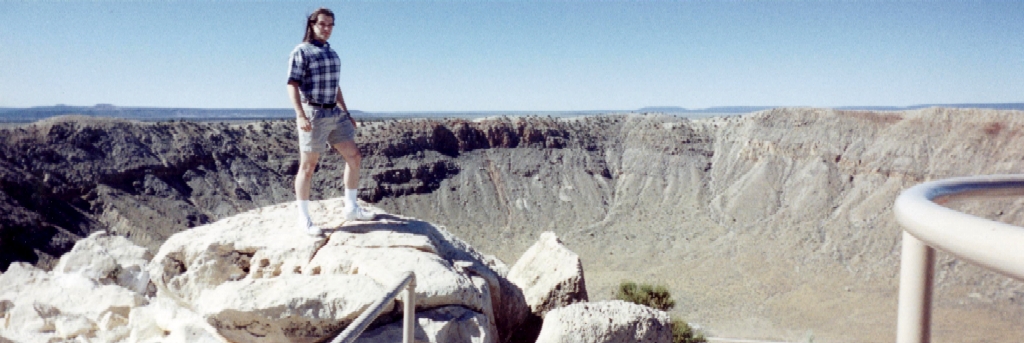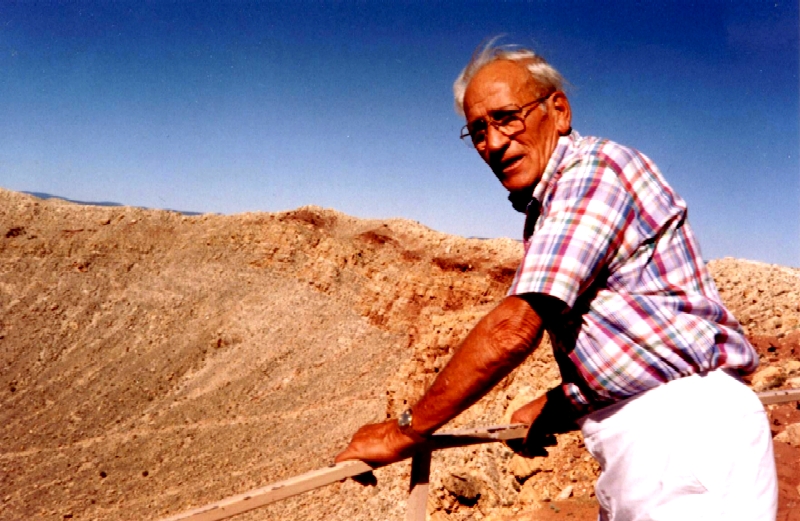Wednesday, July 06, 2005
News Flash: Established Scientific Theory May Be Wrong
Which one, you ask? Oh. Let's see... uh, well, first of all, in health the low levels of radiation used in X-rays may pose a cancer risk after all, though it is a slight one - but on the other hand moderate sun exposure, long-derided for its potential for skin cancer, may prevent more cancers than it causes by helping the body generate cancer-fighting vitamin D. Or in particle physics and cosmology, it's hard to keep track of who's found a crack in the Standard Model and the Big Bang theory this week ... and which of those from last week have then been labeled crackpots this week.
But the theory I was actually thinking of was the traditional story of how humans got to the New World: by a land bridge, 11,000 years ago. According to New Scientist, 40,000 year old footprints preserved in ash may upset this view. The scientists who discovered and studied the footprints have no idea how humans got there so early --- but they are confident enough about the the dating of their footprints to ask other scientists to check their work.
This isn't the first time that evidence has surfaced that humans were there earlier, but traditional scientists wanted to ignore the evidence in favor of their models: "The conventional view is that humans arrived in the Americas via Beringia around 11,000 years ago, when a land bridge became available between Siberia and Alaska. There have been claims about earlier waves of settlers, who must have made the crossing over water, based mainly on sites with signs of habitation dated up to 40,000 years ago, but these claims have drawn intense criticism."
SO obviously this new evidence will need to be carefully vetted, as the scientists who put it forward themselves claimed. But, in the end, the truth will come out, found by people who are willing to look clearly at difficult problems with an open mind, clearing away the smudges from the screen until the phenomenon can be seen clearly, or not at all. The truth does NOT come to those who reject the data before them out of hand, on the specious principle that "extraordinary claims require extraordinary evidence": that kind of thinking caused people to deny the movement of the Earth around the Sun, or of the continents upon the Earth, or of rocks from the sky to the Earth itself.
On that note, and of those people, I am reminded of Thomas Jefferson's thoughts on meteorites: "Gentlemen, I would rather believe that two Yankee professors would lie than believe that stones fall from heaven."

I, on the other hand, think we should let the data speak for itself.

But the theory I was actually thinking of was the traditional story of how humans got to the New World: by a land bridge, 11,000 years ago. According to New Scientist, 40,000 year old footprints preserved in ash may upset this view. The scientists who discovered and studied the footprints have no idea how humans got there so early --- but they are confident enough about the the dating of their footprints to ask other scientists to check their work.
This isn't the first time that evidence has surfaced that humans were there earlier, but traditional scientists wanted to ignore the evidence in favor of their models: "The conventional view is that humans arrived in the Americas via Beringia around 11,000 years ago, when a land bridge became available between Siberia and Alaska. There have been claims about earlier waves of settlers, who must have made the crossing over water, based mainly on sites with signs of habitation dated up to 40,000 years ago, but these claims have drawn intense criticism."
SO obviously this new evidence will need to be carefully vetted, as the scientists who put it forward themselves claimed. But, in the end, the truth will come out, found by people who are willing to look clearly at difficult problems with an open mind, clearing away the smudges from the screen until the phenomenon can be seen clearly, or not at all. The truth does NOT come to those who reject the data before them out of hand, on the specious principle that "extraordinary claims require extraordinary evidence": that kind of thinking caused people to deny the movement of the Earth around the Sun, or of the continents upon the Earth, or of rocks from the sky to the Earth itself.
On that note, and of those people, I am reminded of Thomas Jefferson's thoughts on meteorites: "Gentlemen, I would rather believe that two Yankee professors would lie than believe that stones fall from heaven."

I, on the other hand, think we should let the data speak for itself.

Labels: Hard Science
// posted by Anthony Francis @ 9:04 AM Permalink

 By day, Anthony Francis makes computers smarter; by night he writes science fiction and draws comic books. He lives in San Jose with his wife and cats but his heart will always belong in Atlanta.
By day, Anthony Francis makes computers smarter; by night he writes science fiction and draws comic books. He lives in San Jose with his wife and cats but his heart will always belong in Atlanta.
Comments: